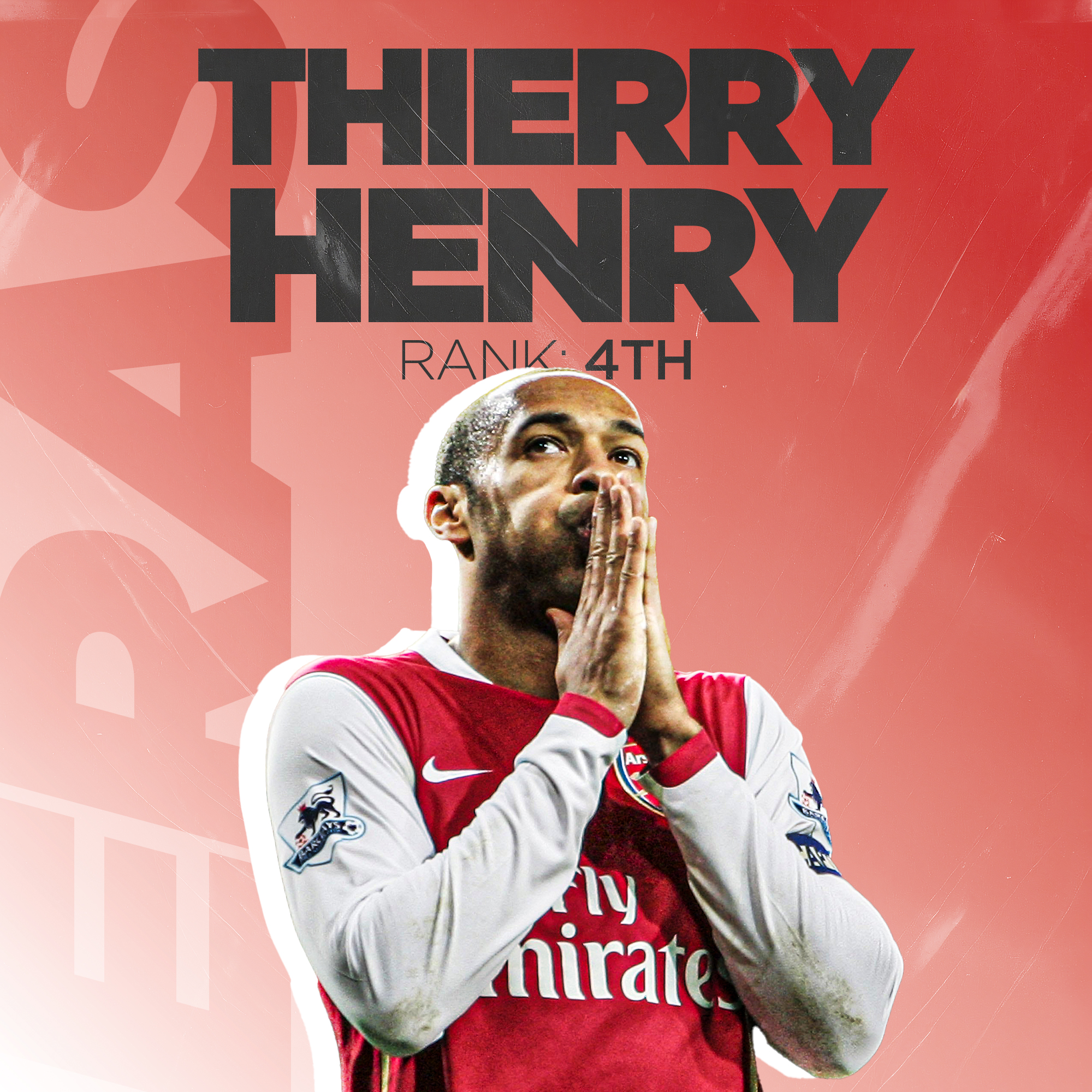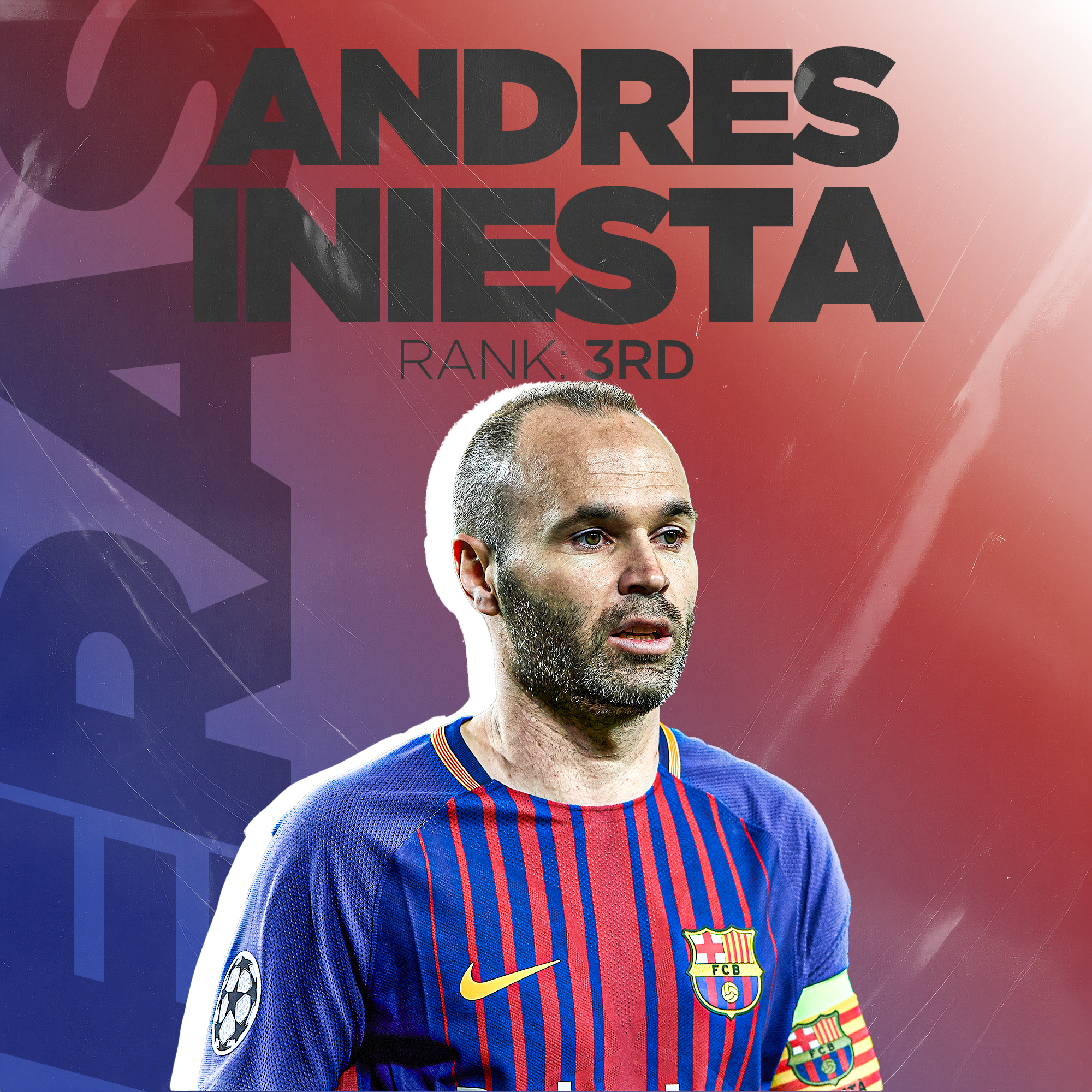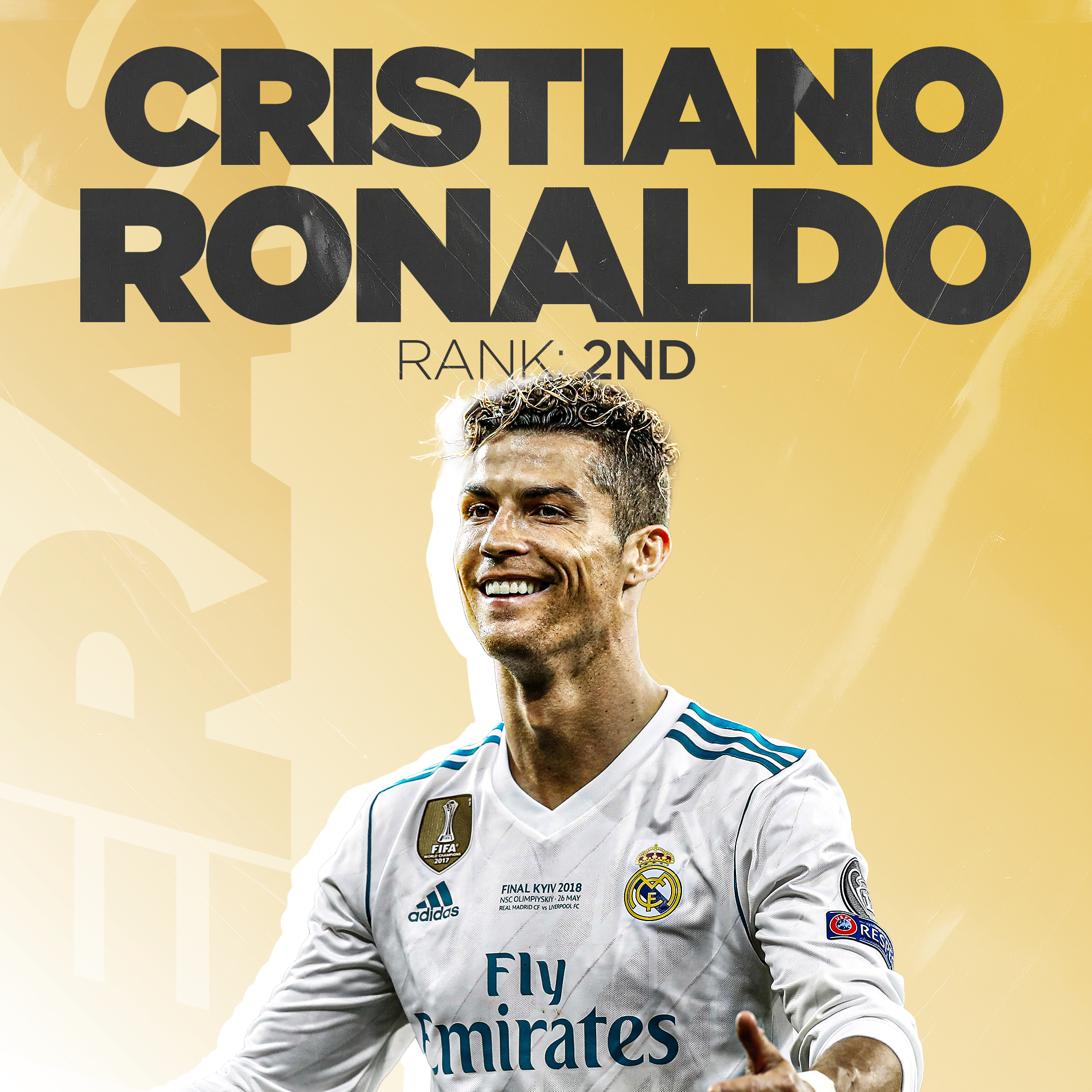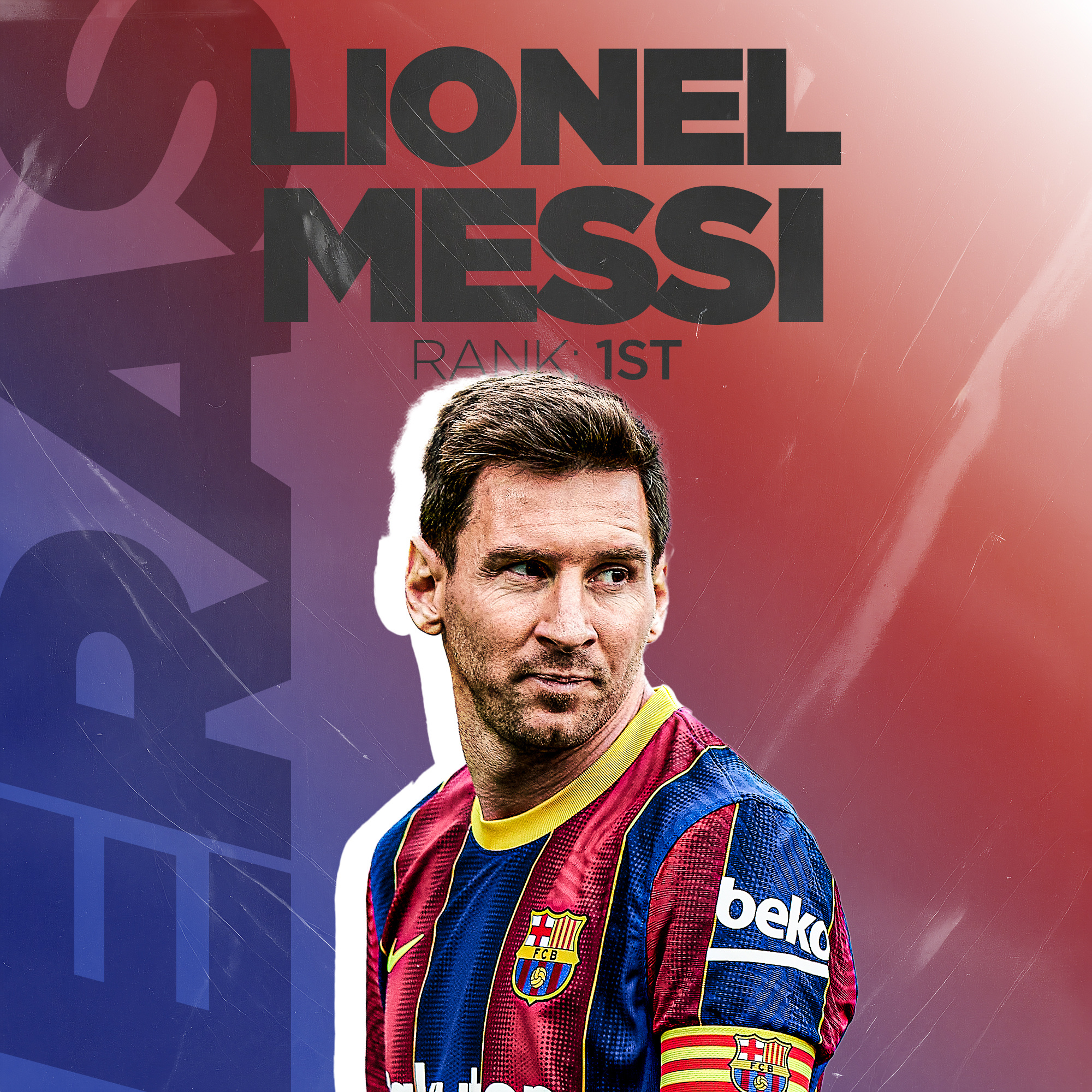The latest edition of theScore’s Eras project, which celebrates greatness in every major sport over the last 25 years, ranks and discusses the 25 best male soccer players since 2000.
Remember: Respective accomplishments and accolades compiled before the year 2000 weren’t considered for this project. For example, Zinedine Zidane’s titanic showing in the 1998 World Cup isn’t part of his resume as it relates to this exercise, but his performances – and the infamous conclusion – in the 2006 tournament are taken into account.
Monday: Introductory essay and players 21-25
Tuesday: Players 16-20
Wednesday: Players 11-15
Thursday: Players 6-10
5. Luka Modric 🇭🇷
Era teams: Dinamo Zagreb 2002-08; Tottenham Hotspur 2008-12; Real Madrid 2012-present; Croatia 2006-present
Signature performance: Croatia is an anomaly in modern soccer. Only eight different nations have reached a men’s World Cup final since 1990 and they are the sport’s proverbial powerhouses: Germany, Argentina, Brazil, Italy, France, Spain, the Netherlands. And Croatia. Modric willed the modest country there in 2018.
The captain scored in his team’s opening two matches (including a sensational strike from distance in a 3-0 thumping of Lionel Messi’s Argentina), converted penalties in shootout wins in both the round of 16 and quarterfinals, and ran the show in an extra-time victory over England in the semis. France proved one obstacle too far in the final, but Modric was rightly rewarded for his heroics by claiming the Golden Ball as player of the tournament, which paved the way for his Ballon d’Or win later in the year.
Why he’s here: In an age where midfielders became more and more specialized as part of increasingly rigid tactical systems, Modric has been a unicorn. There are crafty playmakers and hard-nosed tacklers, ball-carriers, tempo-setters, set-piece specialists, and scoring threats – Modric is all of those things wrapped into one diminutive, indefatigable package. He’s the ultimate Swiss Army knife in midfield, a box-to-box dynamo who’s been dictating games for almost 20 consecutive seasons at the sport’s highest level.
He’s the best all-around midfielder of this era, controlling the most important area on the pitch with his innate feel for the game. The longtime center-piece of Real Madrid’s celebrated midfield, Modric always knows when to speed things up or slow them down, finding angles and openings others can’t see. He’s one of the most universally respected players around, too. When Italian journalist Francesco Repice pleaded with Modric to “never retire” after Croatia’s final game at Euro 2024 – another Man of the Match performance – the room applauded in unison. Few others elicit such feelings.
A lot of these are abstract ideas. His achievements, though, aren’t. He’s the most decorated player in Real Madrid history with 27 trophies (and counting). Of all the legends to play for the storied club, Modric stands alone in that regard, a stunning feat that speaks to his longevity. From 2007-08, when he starred at Dinamo Zagreb, through 2023-24, he averaged just under 3,000 minutes played per season across all club competitions.
Consistent excellence alone gets him on this list. The aforementioned Ballon d’Or, which saw Modric end the unprecedented 10-year Messi-Ronaldo duopoly, fires him into the top five. The 39-year-old’s list of accolades keeps going, and going, and going. Just like him. – Gianluca Nesci
4. Thierry Henry 🇫🇷

Era teams: Arsenal 2000-07, 2012; Barcelona 2007-10; New York Red Bulls 2010-14; France 2000-10
Signature performance: Arsenal would’ve never achieved invincibility without Henry’s inspirational hat-trick against Liverpool in April 2004. His first goal canceled out Liverpool’s 1-0 lead, and then, with the game tied 2-2, the Frenchman set off on a dazzling run, finding instant vulnerabilities in the wall of defenders ahead of him. That’s when he went to work. Henry shrugged off one defender, sidestepped Jamie Carragher into oblivion, and calmly slotted in what stood as the winning goal. A scruffier finish completed Henry’s hat-trick, capping a 4-2 win for the Gunners that helped deliver the title and the first and only unbeaten season in Premier League history.
It also resuscitated a season that was unravelling. The win followed losses to Manchester United and Chelsea that kicked Arsenal out of the FA Cup and Champions League – dreams of a treble ended in just seven days. So, when they broke for halftime against Liverpool, the players thought they were about to lose everything. Henry wasn’t even supposed to play in that game. A back problem nearly forced him to withdraw from the matchday squad. But he stepped up. As magnificent as Arsenal were in those days, they always looked to Henry for inspiration. “We were expecting someone to do something magical and it happened,” teammate Patrick Vieira said. “We wanted for him to do it. He was there for us. When you are struggling you expect him, or Dennis (Bergkamp), to do something.”
Why he’s here: Henry doesn’t have a Ballon d’Or like Karim Benzema or a goal-scoring record like Robert Lewandowski. Harry Kane and Wayne Rooney each scored more Premier League goals than Henry – and neither is on this list. There are tangibles that Henry doesn’t have. And yet he’s fourth on the list because he has both tangible evidence of his extraordinary center-forward play across a trophy-laden career and a legacy as one of the century’s most influential players.
His achievements are wide-ranging. He won the Premier League Golden Boot a record four times, and at 0.68 goals per game ranks first among Premier League players with at least 15,000 minutes logged. He also clinched top-flight titles in France, England, and Spain, a continental treble with Barcelona, and the World Cup and Euro with France. Only a handful of his peers have as complete a trophy cabinet as Henry does.
But he deserves even more praise for the way he changed the center-forward position. After wasting a year as a wing-back at Juventus, Henry helped create the monster that is the modern-day striker, bringing pace and flair to a position typically reserved for bruising players with one-dimensional finishing ability. He became an unstoppable force with the ball at his feet, proving strikers can make something happen outside the confines of the 18-yard box. “He did blast the way for that goal-scoring winger to come inside,” former Arsenal striker Ian Wright said. “Left foot, right foot, pace. A devastating phenomenon coming towards you.”
There is no Kylian Mbappe without Henry leading the way. Henry had this astonishing ability to shoot the ball at top speed, and so does Mbappe. Henry, who didn’t even have much faith in himself as a goal-scorer, made it possible for wingers in the traditional mold to start out wide and still score as regularly as any No. 9. He recorded at least 10 goals in 10 straight seasons – and produced some of the Premier League’s most iconic moments while at it. – Anthony Lopopolo
3. Andres Iniesta 🇪🇸

Era teams: Barcelona 2002-18; Vissel Kobe 2018-23; Emirates Club 2023-24; Spain 2006-18
Signature performance: Iniesta wrote himself into soccer lore July 11, 2010, becoming a Spanish legend with one fateful swing of his cultured right leg. And in the celebration that ensued, he endeared himself to the entire footballing world. Iniesta’s winning goal in the 116th minute of the 2010 World Cup final will always be one of the sport’s lasting images. Spain, an underachiever for so long, finally had its first men’s World Cup title after 80 years. Iniesta, lauded as the best player his country’s ever produced by the likes of Xavi and David Silva, was the fitting hero.
It was the iconic scene in a career loaded with them, the kind every aspiring player dreams of as a child. That Iniesta used the moment to reveal a message honoring Dani Jarque, his late friend and former Espanyol captain who died suddenly of a heart attack the year prior, said everything about the person behind the jersey. “That moment was magical,” Iniesta explained. “It was something I really wanted to do for Dani, his family. It was the perfect stage, the perfect moment to pay tribute.”
The most iconic winning goal ever? ✨ 🇪🇸 #OnThisDay in 2010, Andres Iniesta produced some late magic as Spain won their first #FIFAWorldCup! 🏆 🤩 @andresiniesta8 | @SEFutbol pic.twitter.com/B78JQy2lqd
— FIFA World Cup (@FIFAWorldCup) July 11, 2022
Why he’s here: Pep Guardiola knew he was witnessing greatness right away. “Remember this day – the day you first played with Andres,” Guardiola told Xavi when a then-16-year-old Iniesta began training with Barcelona’s senior squad for the first time. “You’re going to retire me. This lad is going to retire us all.”
Iniesta was elegance personified on the pitch, a genius with the ball who could glide past bigger, stronger, and faster players before they knew what was happening. “There’s always a moment when you think you’re going to catch him, when you think you’re going to get the ball off him, but you can’t,” Messi said of his former teammate. Watching Iniesta was like watching a magic act. “La Croqueta,” his signature piece of skill that saw the little Spaniard effortlessly escape opponents with two simple touches, left defenders in his wake for over a decade. From there, he always seemed to make the right pass, somehow able to see the entire pitch at all times.
He retired this year with 38 trophies for club and country, including the World Cup, two European Championships, and four Champions League titles. He’s the only player ever to be named Man of the Match in a World Cup, European Championship, and Champions League final. We could go on. Instead, we’ll let one of the greatest players in history explain why Iniesta was so special.
“People have compared him to me and I can see the similarities,” Zinedine Zidane said. “And let me tell you: that is an honor to me.” – Nesci
2. Cristiano Ronaldo 🇵🇹

Era teams: Sporting CP 2002-03; Manchester United 2003-09, 2021-22; Real Madrid 2009-18; Juventus 2018-21; Al-Nassr 2023-present; Portugal 2003-present
Signature performance: While not a performance in the traditional sense, Ronaldo may have made the most memories as Portugal’s stand-in coach during the Euro 2016 final. After succumbing to an early injury, he patrolled the sidelines like a caged animal, willing his teammates to a stunning victory over France.
But he’s accomplished far too much on the pitch to highlight something he did off it. Think of all the hat-tricks he’s scored: There’s the one he produced against Sweden that booked Portugal’s place at the 2014 World Cup; the two times he single-handedly overturned 2-0 deficits in the Champions League; the perfect hat-trick he completed against Bayern Munich in 2017; and the tit-for-tat treble he willed to life in a pulsating 3-3 draw with Spain at the 2018 World Cup. The last of those may not have been as consequential as the others – neither Portugal nor Spain advanced further than the round of 16 – but nevertheless showed the essence of a man who never quit. Ronaldo converted a penalty to give Portugal the lead, powered in a shot from long range to restore it, and curled in a memorable 88th-minute equalizer off one of the best free-kicks he’s ever taken.
Why he’s here: Ronaldo was always going to occupy one of the top two positions on this list. It was simply a matter of choosing first or second.
Ronaldo’s spent his whole career chasing the summit. He’s tailored every aspect of his diet to maintain peak physical shape. It would shock no one to see him playing well into his 40s. That’s how addicted he is to personal glory. That internal drive is the reason he’ll go down as one of the best to ever play. Though he’s not our No. 1 pick, it’s hardly through any fault of his own, because Ronaldo leads every meaningful statistical goal-scoring category in the game – and not just in the 21st century. Scoring is the toughest thing anyone can do in soccer, and he’s done it better than anyone else, topping the all-time scoring chart with a still-in-progress 908 goals for club and country. He’s the Champions League’s top scorer with 140 tallies, Real Madrid’s all-time leading goal-getter with 450, and the leader in men’s international scoring with 133. These are sky-high records that may never fall.
His longevity is perhaps his most underappreciated quality. Ronaldo scored at least 25 goals in 12 straight league seasons, firing in as many as 48 during the 2014-15 campaign with Real Madrid. He also went as many as 16 consecutive domestic seasons with 27 starts or more. It’s a skill to stay as healthy as Ronaldo has and to produce for so long at a record-breaking pace. Players who could’ve made this list, including the at-times bedazzling Eden Hazard, would’ve if they’d done as much to avoid injury as Ronaldo did in his prime.
Then there are the trophies. While he doesn’t hold this particular record, he’s still won 33 of them, including seven league championships and five Champions League titles. He has five Ballon d’Or wins – second only to Messi’s eight – and probably deserved to take home more of them. But the biggest prize in his cabinet is the one he wasn’t on the pitch to win. Winning Euro 2016 as Portugal’s captain was Ronaldo’s most fulfilling achievement, providing him with long-awaited success on the international stage. His career would feel much emptier without it. – Lopopolo
1. Lionel Messi 🇦🇷

Era teams: Barcelona 2004-21; PSG 2021-23; Inter Miami 2023-present; Argentina 2005-present
Signature performance: How could we possibly pick just one? Messi’s untouchable career has been a cavalcade of mind-blowing moments. At only 19 years old, he imitated – with stunning accuracy – Diego Maradona’s “Goal of the Century.” It was a sign of things to come. He’s scored more goals in El Clasico than any player in history, including multiple hat-tricks and a last-gasp winner that spawned an instantly iconic celebration. He bagged five goals in a single Champions League match, turned defenders into memes, and has gone on so many sensational solo runs that picking his best one is a genuine debate. Opposing crowds, recognizing his greatness, have chanted his name as if he were playing inside the Camp Nou’s friendly confines.
He’s put his country on his back countless times, ending droughts with Copa America and World Cup titles, the latter settling any outstanding GOAT debates once and for all. He’s racked up over 800 career goals, won 46 trophies, and lifted the Ballon d’Or a record eight times. And he’s not done yet. Now 37, Messi’s still writing his final chapter. Signature performance? His entire career.
Why he’s here: This spot was always Messi’s.
If it wasn’t obvious before 2022, Argentina’s World Cup triumph ended the debate over Messi’s place in history: he’s at the very top of the mountain. Winning the sport’s most coveted trophy cemented his legacy. Even the most ardent Ronaldo fans had to accept it. It was the missing puzzle piece in his career.
Few prospects live up to the hype, their careers so often fizzling out under immense pressure to meet unrealistic expectations. Messi’s different. He was a star from the beginning, shattering projections with a deep knowledge, technical ability, and understanding of the game that helped him evolve into an all-time great. Nobody could touch him in his prime. Messi scored with ease, finishing one calendar year with 91 goals. Nobody’s made the sport look so simple.
But Argentina’s lack of success with Messi was a black cloud over his career, the last thing his few remaining detractors could cling to. After a brief retirement from the national team in 2016, Messi was vital in ending the South American country’s 28-year wait for a major trophy by winning Copa America in 2021. Greater success followed a year later after Messi scored twice in the 2022 World Cup final to help achieve his lifelong dream.
Messi was long talked about in the same breath as Maradona and Pele. The reality is, those legends should be talked about in the same breath as him. – Brunt













